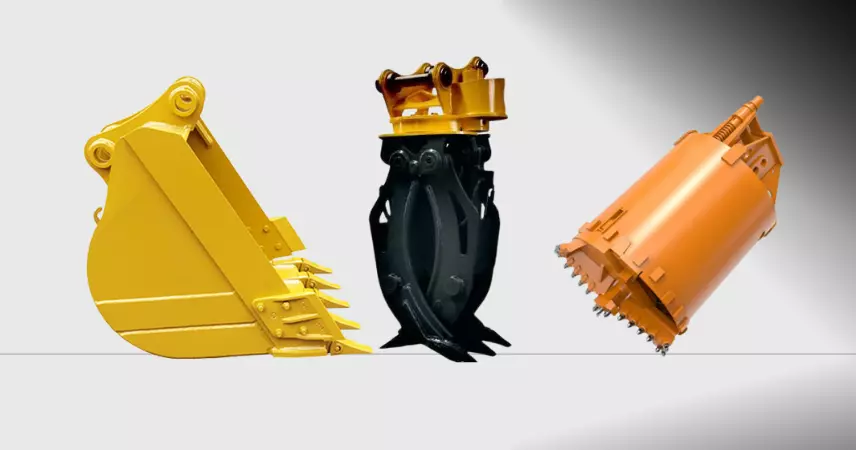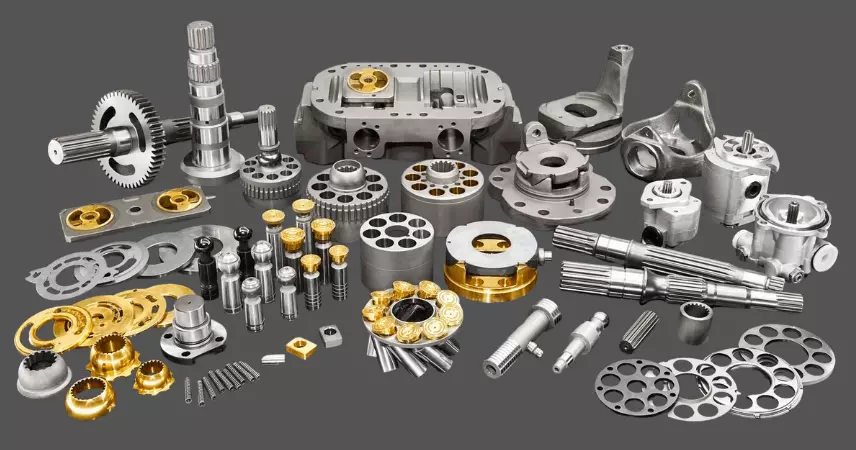+86-135 3388 0668
Introduction to Electric Hydraulic Cylinders and Their Advantages

The world of industrial machinery has come a long way since the introduction of hydraulic systems. Known for their immense power and versatility, traditional hydraulic cylinders have been an integral part of industries ranging from construction to manufacturing. However, as industries continue to evolve, the need for more efficient, precise, and environmentally friendly solutions has given rise to a new technology: electric hydraulic cylinders.
What Are Electric Hydraulic Cylinders?
Electric hydraulic cylinders combine the core features of both electric actuators and traditional hydraulic cylinders. These hybrid systems use electric motors to drive Hydraulic pumps or valves, enabling the smooth and efficient transfer of fluid within a hydraulic system. Unlike conventional hydraulic cylinders, which rely on external pumps powered by combustion engines or electric motors, electric hydraulic cylinders integrate these functions into a single, compact unit.

The integration of electric motors with hydraulic systems offers several key benefits, including greater precision, improved energy efficiency, and reduced environmental impact. Electric hydraulic cylinders are used in a wide range of applications, from construction equipment and industrial machinery to robotics and automated systems.
The Advantages of Electric Hydraulic Cylinders
Enhanced Energy Efficiency: One of the most significant benefits of electric hydraulic cylinders is their improved energy efficiency. Traditional hydraulic systems often experience energy losses due to friction, heat generation, and the inefficiencies of external pumps. In contrast, electric hydraulic cylinders are designed to minimize these energy losses by utilizing a more direct and controlled method of power transfer. The use of electric motors allows for variable-speed control, ensuring that only the required amount of energy is consumed at any given time.
Precision and Control: Electric hydraulic cylinders offer greater precision and control compared to traditional hydraulic systems. This is particularly important in applications where accuracy is critical, such as in robotics, manufacturing automation, and Construction Machinery. With electric motors providing direct control over the cylinder’s movement, operators can achieve finer adjustments and smoother operations. The ability to easily integrate sensors and feedback mechanisms further enhances the system’s precision, making it ideal for high-performance tasks.
Reduced Environmental Impact: As industries face increasing pressure to reduce their carbon footprint, electric hydraulic cylinders provide a more environmentally friendly alternative to traditional hydraulic systems. The elimination of external combustion engines and the use of electric motors reduce harmful emissions and noise pollution. Additionally, the improved energy efficiency of these systems contributes to lower power consumption, which is especially beneficial in energy-intensive industries.
Compact and Space-Saving Design: Electric hydraulic cylinders offer a more compact and streamlined design compared to traditional systems. With fewer components required—such as external pumps and reservoirs—these cylinders can be integrated into smaller, more space-efficient machines. This is particularly advantageous in industries where space is limited, such as in robotics, where compact and lightweight systems are essential for optimal performance.
Reduced Maintenance Costs: The fewer moving parts in electric hydraulic cylinders reduce the need for regular maintenance. Traditional hydraulic systems often require frequent inspections and repairs due to issues such as leaks, wear, and tear on pumps and valves. In contrast, electric hydraulic cylinders are less prone to such issues, resulting in lower long-term maintenance costs and reduced downtime for machinery.
Applications of Electric Hydraulic Cylinders
Electric hydraulic cylinders are gaining popularity in various industries due to their versatility and efficiency. Some of the key sectors where these systems are making a significant impact include:
Construction: In the construction industry, electric hydraulic cylinders are used in a variety of heavy machinery, such as excavators, cranes, and bulldozers. These systems provide the necessary power and precision for tasks such as lifting, digging, and material handling. The compact design and energy efficiency of electric hydraulic cylinders make them ideal for use in modern, environmentally-conscious construction projects.
Manufacturing: Electric hydraulic cylinders are also being used in manufacturing processes, particularly in automation and robotics. The ability to control movement with high precision makes these cylinders ideal for applications such as assembly lines, material handling, and packaging. By reducing energy consumption and increasing productivity, electric hydraulic cylinders help manufacturers stay competitive in a rapidly evolving market.
Robotics: The robotics industry is another area where electric hydraulic cylinders are proving to be a game-changer. Whether used in robotic arms, mobile robots, or autonomous vehicles, these systems offer precise control and smooth operation, which are essential for tasks such as pick-and-place, lifting, and movement through complex environments.
Agriculture: In agriculture, electric hydraulic cylinders are being used to power machinery such as harvesters, planters, and tractors. The efficiency and reliability of these systems help improve crop yield and reduce operational costs for farmers, making them a valuable addition to the agricultural industry.
Aerospace: The aerospace industry has also seen the adoption of electric hydraulic cylinders, especially in applications requiring precise control of flight control surfaces, landing gear, and other critical components. The compact design, low weight, and high efficiency of electric hydraulic cylinders are well-suited to the demanding requirements of the aerospace sector.
Technological Advancements and the Future of Electric Hydraulic Cylinders
Technological Advancements Driving the Development of Electric Hydraulic Cylinders
As industries continue to demand higher performance, lower energy consumption, and more sustainable solutions, electric hydraulic cylinders are evolving to meet these needs. Several technological advancements are contributing to the growing popularity of these systems:
Integration of Smart Technologies: The integration of smart technologies into electric hydraulic cylinders is one of the most exciting developments in this field. By incorporating sensors, actuators, and control systems, manufacturers can create intelligent hydraulic systems capable of monitoring performance, detecting faults, and optimizing energy usage in real-time. These smart systems can adjust parameters such as speed, pressure, and force to improve efficiency and prevent damage, offering a level of automation that was previously unavailable with traditional hydraulic systems.
Improved Materials: Advances in materials science are also playing a key role in the development of electric hydraulic cylinders. New materials, such as lightweight composites and high-strength alloys, are being used to reduce the weight and increase the durability of these cylinders. This makes them even more suitable for demanding applications, such as aerospace and robotics, where both weight and strength are crucial considerations.
Battery and Power Supply Innovation: One of the challenges with electric hydraulic cylinders is ensuring a reliable and continuous power supply. Innovations in battery technology and energy storage solutions are helping to address this issue. For instance, the development of high-capacity lithium-ion batteries and energy recovery systems is enabling electric hydraulic cylinders to operate more efficiently and for longer periods without requiring frequent recharging.
Hybrid Systems: In some cases, electric hydraulic cylinders are being used in combination with traditional hydraulic systems to create hybrid solutions. These hybrid systems can provide the best of both worlds—combining the power and reliability of traditional hydraulics with the energy efficiency and precision of electric actuators. Hybrid systems are particularly useful in applications where a high level of force is required but where energy efficiency and precision are also important.
The Future of Electric Hydraulic Cylinders
The future of electric hydraulic cylinders looks promising, with continued advancements expected to drive further adoption across various industries. Here are some trends and possibilities for the future:
Increased Adoption Across Industries: As the technology matures and becomes more affordable, electric hydraulic cylinders are expected to become more widespread across industries. The push for sustainability and energy efficiency is likely to accelerate the adoption of these systems, particularly in sectors where energy consumption is a significant concern.
Integration with IoT and Industry 4.0: The rise of the Internet of Things (IoT) and Industry 4.0 technologies will likely have a profound impact on the development of electric hydraulic cylinders. By integrating these systems into larger networks of connected machines, manufacturers can gain greater visibility into performance, automate maintenance schedules, and further optimize energy consumption.
Advancements in Autonomous Systems: As autonomous vehicles and robots become more sophisticated, electric hydraulic cylinders will play a crucial role in enabling precise and reliable movement. Whether in self-driving cars, drones, or automated factories, these cylinders will be integral to achieving the next level of automation.
Continued Environmental Focus: With an increasing emphasis on reducing the environmental impact of industrial operations, electric hydraulic cylinders will continue to evolve to offer even greater energy savings and lower emissions. The development of more efficient power sources, coupled with reduced material waste, will help industries meet stricter environmental standards.
Electric hydraulic cylinders are shaping the future of industrial machinery, offering a host of benefits that enhance performance, energy efficiency, and sustainability. As technological advancements continue to push the boundaries of what is possible, these systems are set to play a pivotal role in the industries of tomorrow. Whether in construction, manufacturing, or robotics, electric hydraulic cylinders are at the forefront of the next industrial revolution, providing solutions that are not only smarter but also more sustainable.
Search
Blog & News